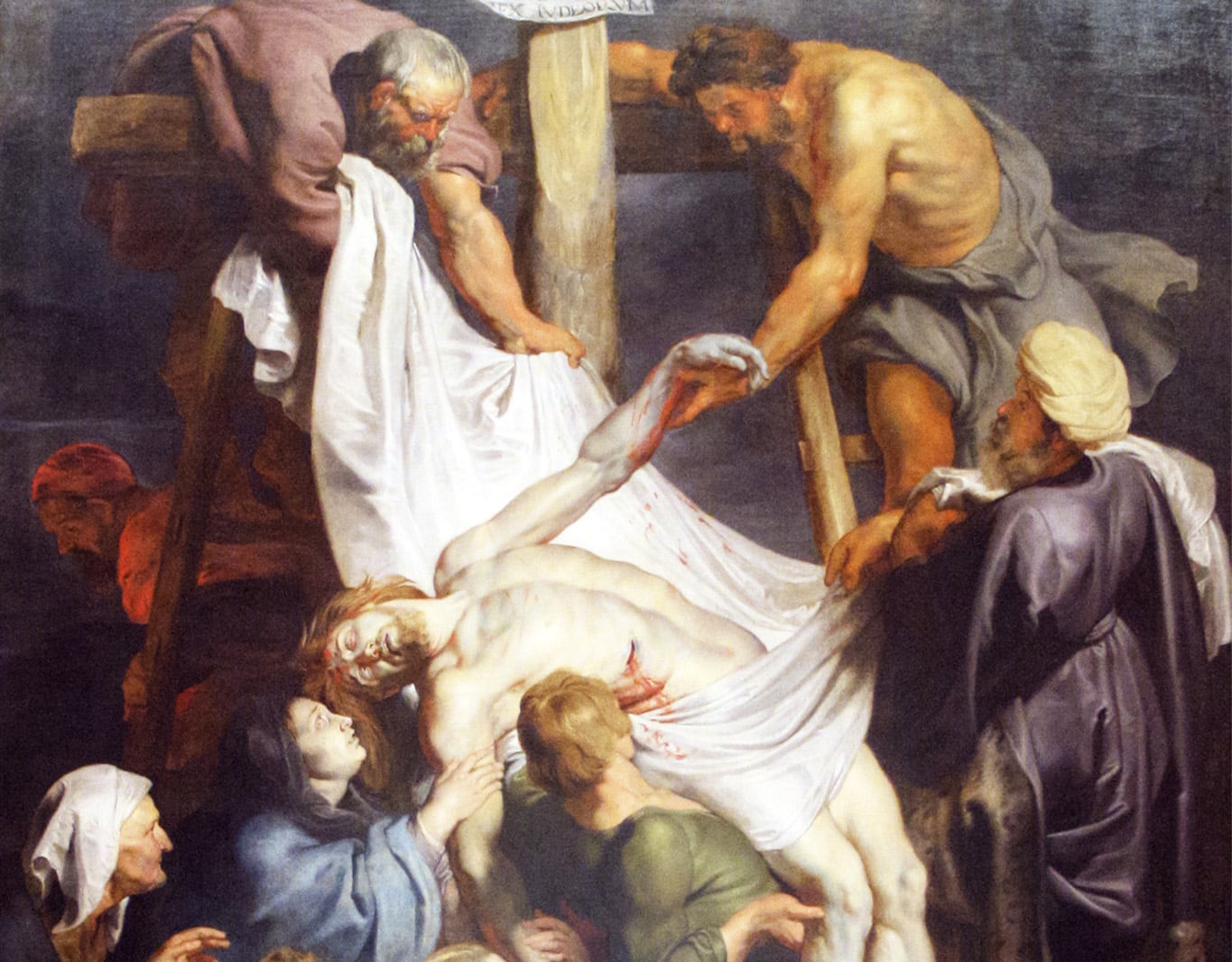Women who struggle or have struggled with infertility want other women in similar circumstances to know one thing: You are not alone.
“I want women struggling with infertility to know that they are not alone and that their desire for a baby is a very good and beautiful one,” Mary Bruno, executive director of FAbM Base, a nonprofit dedicated to fertility awareness, and author of “Twelve Stripes Deep: How Infertility & Other Suffering Delivered My Greatest Joys,” told Our Sunday Visitor.
“But most importantly,” she added, “our desire for God and His will, even when different from our own, is what will bring us the most peace and fulfillment.”
Sharing the struggle
Bruno and four other Catholic women who have openly shared their struggles with infertility — The Fruitful Hollow’s Kristin Dievendorf, Springs in the Desert’s Ann M. Koshute, The Catholic Association’s Leigh Fitzpatrick Snead, and writer Emily Zanotti — offered guidance for women following the Alabama Supreme Court’s in vitro fertilization (IVF) ruling that recognized frozen embryos as children.
The decision aligns with Catholic Church teaching, which opposes IVF and states that the embryo “must be treated from conception as a person.”
“IVF is sold as a merciful, scientific advancement that gives couples their last chance to conceive a biological child, which I get the appeal of,” Bruno responded on Instagram. “I understand that desire because it’s for something very good. But that does not mean that any means to achieve my desire are good.”
According to the Centers for Disease Control and Prevention (CDC), infertility is common: Around one in five U.S. married women ages 15 to 49 with no prior births struggle with infertility or are unable to get pregnant after one year of trying.
Here are 10 things women who have struggled with infertility want other women facing the same cross to know — and what they wish more Catholics, in general, understood about them.
1. You are not alone
More than anything else, the women who spoke with Our Sunday Visitor repeated the message that women struggling with infertility are not alone.
“I want them to know they’re not alone,” Zanotti, a humor writer and political consultant based in Nashville, said. “That there are so many Catholic women struggling right alongside them, and that God is also with them in this difficult season.”
2. Ministries want to accompany you
Catholic ministries — ministries led by women who struggle with infertility — seek to accompany these women.
Dievendorf, coordinator of Sisters of Hannah mentorship ministry at The Fruitful Hollow, a Catholic infertility resource, said her group “exists to remind women of their belovedness.”
The group offers community: In addition to mentoring, it hosts an array of resources online, from a blog and information about NaProTechnology (medical treatment aligned with Church teaching) to advice on processing infertility grief and dealing with pregnancy and birth announcements.
Koshute, co-founder and executive director of Springs in the Desert, a Catholic infertility ministry, shared that they also focus on community. Among other things, they offer a podcast, a blog, and events and retreats.
“Our Springs in the Desert community is here to walk with women and couples wherever they are on their path of infertility or loss,” Koshute said, “because having a place to feel seen and understood, and to focus on Christ, helps us know that we’re not alone.”
3. Embrace God through it all
Many women emphasized God’s accompaniment through the pain, including Snead, a fellow for The Catholic Association and co-host of the nationally syndicated radio show Conversations with Consequences.
“I want them to know that their suffering is not in vain,” she said of women struggling with infertility, “and that if they let it, it can bring them closer to Christ, especially through his Mother who will be a mother to you if you ask.”
Snead, who adopted four sons with her husband, has previously written about carrying the cross of infertility for outlets such as the National Catholic Register.
“Even though it can hurt so badly,” she urged, “have faith that you’re being called to something extraordinary.”
4. You possess inherent dignity and worth
These women wanted other women to know their value regardless of their struggles.
“What we communicate in our ministry is that infertility is a circumstance, not our identity,” Koshute with Springs in the Desert said. “It doesn’t make you less of a woman or a wife.”
Zanotti, who writes about raising three toddlers and infertility on her Substack, recognized that women struggling with infertility bear a heavy cross that few understand.
“I found the hardest thing to deal with, while I was struggling, were well-meaning people who tried to provide ‘simple’ solutions to a complex problem,” she said. “You aren’t in this situation because you aren’t praying hard enough, or praying the right novenas, because babies are given only to people who ‘deserve’ them, or because you’re not appropriately ‘relaxed.'”
“This just…happened,” she responded. “It doesn’t make you less-than.”
5. You are still life-giving
Many women stressed that women can embrace motherhood — even if not in the way they originally envisioned.
“I wish more Catholics understood that the call to be fruitful, to procreate, to be open to life, and to motherhood includes producing children, but is absolutely not limited to it,” Bruno said. “God calls all of us, fertile and unable to conceive, to produce new life into the world through his grace and creativity in a multitude of marvelous ways!”
Bruno, who suffers from endometriosis and infertility and adopted a daughter with her husband, previously spoke about her story with Our Sunday Visitor.
“We are all called to make God’s love tangible in our own unique and wonderful ways,” she continued. “We are all valuable and needed.”
Zanotti agreed that women can practice motherhood in a variety of ways.
“I struggled with my faith, more than anything, in the years that I struggled to have children,” Zanotti revealed. “But God truly does have a plan, and while many of us may never be ‘mothers’ in the classic sense, our maternal nature — the gift we are given by virtue of being women — is necessary in so many areas of our culture — in our families, yes, but also in our workplaces, in our communities, and in our churches.”
She added: “Motherhood — be it the act of having and raising children, or nurturing your talents, working with others, providing to our communities — it is all the same, and all valuable.”
6. This is not the end
For her part, Bruno emphasized that women can survive their struggles.
“It is precisely our willingness to step into the pain of our unanswered longings, rather than trying to escape or go around them, that brings us true restoration and joy,” she said.
While Bruno has mourned not getting pregnant, she is not only okay, but also thriving. She wanted other women to know that they can thrive too.
“If pregnancy doesn’t happen, it is cause to mourn, but it is not a failure,” she said. “It is an opportunity to produce life in other beautiful and fulfilling ways.”
7. Don’t stop living life
Snead, at the Catholic Association, encouraged women who are struggling to keep living life.
“Practically speaking, while I think it can be important to lighten your load during your fertility journey — which can be very time consuming and emotionally taxing — I also think it’s important to continue to live a life full of things and people you love rather than just charts and doctor appointments,” she said. “This is especially important if you ever decide to expand your family through adoption.”
She added: “There is so much patience required during the adoption process that if you’ve lost sight of what you love about your life right now, you’ll be miserable.”
8. Practice the little things
At the Fruitful Hollow, Dievendorf gave a number of suggestions to women.
“My advice would be to be open. Spend daily time in prayer. Surround yourself with people who will listen and support you,” she said. “The Church offers some good guidelines of what not to do, but there are many ethical choices that you do have to explore as well.”
“Take stock of how you spend your day and do things that you love,” Dievendorf added. “Spend quality time with your husband and nurture your relationship.”
She also pointed to God.
“Exercise good discernment by inviting God into the equation, simplify your choices and keep honest with what matters the most to you,” she said. “If you hold true to your faith, values, and simplify the process, you are growing in virtue and that is something that can never be taken from you.”
9. Focus on your marriage
These women encouraged women who struggle with infertility to cultivate their marriages, beginning with Zanotti, who advised couples to “be involved with each other.”
“Try to schedule dates, too, where you just hang out with each other,” recommended, among other things. “It’s really easy, with the determination to get pregnant, to lose sight of the rest of your marriage — and why you want to have kids with each other in the first place!”
At Springs in the Desert, Koshute encouraged women to cultivate their marriages and seek a support system.
“Whatever season you are in – trying to conceive, seeking treatment, or moving past childbearing years – it’s essential to nurture your marriage and seek counseling or spiritual direction if you need help processing the big emotions that can come with infertility,” she said.
“God loves you,” she added, “and whether or not you end up having children, He is inviting you and your spouse to be fruitful in so many unique and unexpected ways.”
10. Communicate with your community
Many of these women acknowledged the importance of communication and community.
“My best advice is try your best to communicate how you feel and advocate for yourself,” Zanotti said. “Lots of people want to help, and they don’t know how.”
“I found that the more I told my husband and my close friends what I was feeling and experiencing, the better I was able to cope,” she continued. “And don’t hesitate to involve your close friends (and your husband!) in the process. You don’t need to face these things alone.”
What Catholics should know about women struggling with infertility
Many of the women who spoke with Our Sunday Visitor wanted Catholics to know that women struggling with infertility desire community.
“I wish more Catholics understood that women who struggle with infertility need to feel connected and drawn in by their community, where we often feel isolated because our families and lifestyles look so different,” Bruno said. “We want to feel valued just as we are and to witness spiritual motherhood and fruitfulness outside of bearing children be celebrated also.”
Some, such as Zanotti, encouraged Catholics to better understand their struggles.
“I wish more Catholics understood what goes into the ‘Catholic’ approach to infertility,” Zanotti said. “We often, with NFP and NaPro, gloss over the difficulties couples — and women, especially — face with natural family planning and licit approaches to treating infertility.”
She shared her own experience.
“For me, treatment for my infertility involved lots of invasive procedures — bloodwork, transvaginal ultrasounds several times a month, ovarian stimulation (which is a largely injectable medication), and, ultimately, surgery to correct very serious endometriosis,” she described. “Even though we correctly avoided egg retrieval and petri-dish conception, it was still a punishing regimen on my body, mind, and spirit, and few Catholics that I spoke to understood that avoiding illicit reproductive methods still could mean such a physically difficult process.”
Women struggling with infertility need love
Most of the women highlighted that women struggling with infertility need love, not judgment.
“Sometimes we’re tempted to judge childless couples (or who have only one or two children), assuming they’re contracepting or just too selfish to have children, but unaware of their struggle with infertility or miscarriage,” Koshute pointed out.
She cautioned against giving struggling couples advice or “solutions.” Instead, she said, these couples need love and friendship.
“Affirm their marriages, invite them to participate in and help with parish events,” she concluded. “Let them know their gifts are needed in the Church, and recognize the significance of their marriages as witnesses and sources of abundant fruits for the parish family and for the world.”







